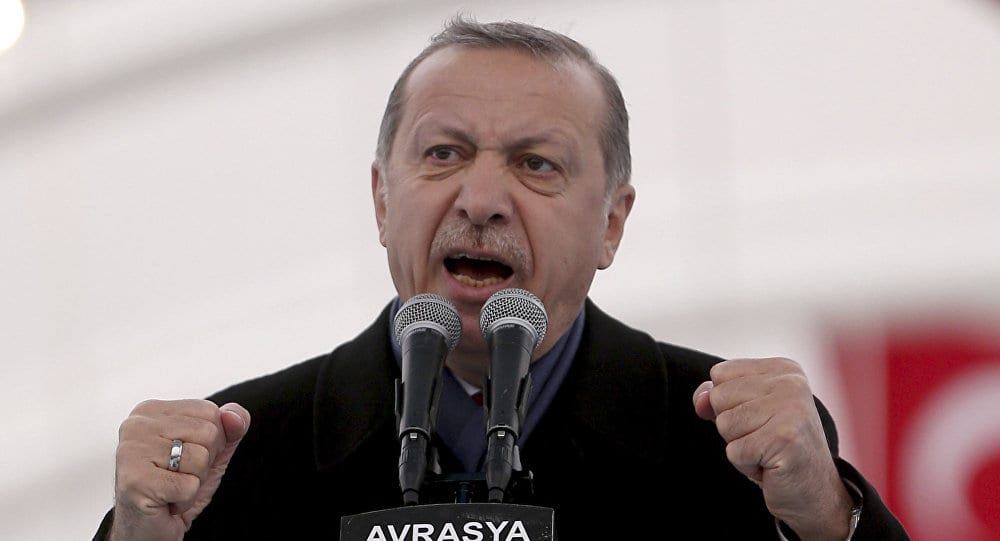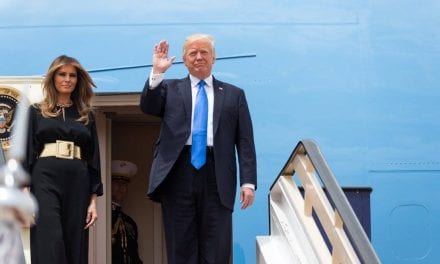While the EU frets about Moscow’s role in its backyard, Ankara has also increased its influence there.
ByZIA WEISE, Politico.eu
A century after the Ottomans lost the Balkans, the empire’s heirs are making inroads once again.
As the European Union seeks to increase its sway in the western Balkans, the bloc will not only have to contend with a more assertive Russia, but also with the growing ambitions of Turkey.This Thursday, EU leaders will meet their counterparts from six western Balkan countries — Albania, Bosnia and Herzegovina, Kosovo, Macedonia, Montenegro, and Serbia — in the Bulgarian capital of Sofia. At the first such summit since 2003, the EU will restate that its door remains open to the region, while the Balkan leaders will pledge to undertake the reforms needed to become members one day.
The EU’s renewed interest in its southern backyard has been prompted partly by fears about Moscow’s role there — from giving fighter jets to Serbia to an alleged role in a coup attempt in Montenegro. But Russia is not the only power with a long history in the region exerting greater influence once more.
European leaders have expressed concern over Turkey’s expanding influence in the western Balkans, particularly since the country has taken a more authoritarian turn. Speaking to the European Parliament last month, French President Emmanuel Macron put Ankara and Moscow in the same bracket, saying he did not want the Balkans to “turn towards Turkey or Russia.”
That remark ruffled feathers in Ankara, even prompting a rebuke from President Recep Tayyip Erdoğan himself.
Turkey considers the Balkans part of its natural sphere of influence as the former imperial power, with the Ottoman Empire famously stopping only at the gates of Vienna at its peak.
During Erdoğan’s 15-year rule, Turkey has invested significant effort and money into gaining an ever greater political, cultural and economic foothold in the western Balkans. It has provided development aid, led major infrastructure projects, opened universities and restored mosques, encouraged Turkish businesses to invest in the region and fostered dialogue between divided communities.
But Ankara’s political reach has a darker side too. Erdoğan and Turkish ministers have pressed western Balkan countries to take measures against followers of the U.S.-based imam Fethullah Gülen, whom Ankara blames for the 2016 attempt to overthrow the government.
In March, the Turkish intelligence agency brought six suspected Gülenists from Kosovo to Turkey — apparently without the knowledge of Kosovo’s prime minister, who fired his interior minister and spy chief over the affair. Relatives of the men described the deportation as a “kidnapping.”
Erdoğan’s plan to hold a rally in the Bosnian capital Sarajevo on May 20 ahead of Turkish presidential and parliamentary elections in June also demonstrates the extent of his influence in the region. Western European countries banned similar rallies before Turkey’s constitutional referendum last year.
Yet many in Turkey, including critics of the government, argue that their country’s role in the western Balkans does not compete with the EU’s plans there, but rather complements the bloc’s efforts.
“Turkey is not Russia,” said Sinan Ülgen, a former Turkish diplomat and visiting fellow at think tank Carnegie Europe. “Turkey is not in the business of trying to dissuade the western Balkan countries from converging with the EU — on the contrary.”
An official in the Turkish foreign ministry, speaking on condition of anonymity, struck a similar note about the EU’s worries.
“I don’t understand, to tell the truth, why they are getting anxious about Turkey’s influence in the Balkans,” he said. “We’d like to establish good relations, we’d like to trade with them, we support Euro-Atlantic integration. It’s a win-win situation.”
Shared history
Over centuries of Ottoman rule, a mix of forced population transfers and voluntary migration between the western Balkans and what is now Turkey created large diasporas on both sides. The cityscape of Istanbul is littered with remnants of that era, with place names such as Arnavutköy (“Albanian village”) and Belgrade Forest.
“Whenever you go to a social occasion [in Turkey], just find a group of 10 people and half of them will have family links to the Balkans,” said Bahadır Kaleağası, the CEO of the Turkish Industry and Business Association (TÜSIAD).
“There’s that family relationship, and it influences decision-making in the business community as well. It’s an emotional issue,” he added.
Turkish investment and trade has ballooned across the region. Murat Uğur Ekinci, a Balkans analyst at SETA — a think tank close to the Turkish government — said official statistics show a remarkable increase in Turkey’s trade with the western Balkans, from $435 million (€364 million) in 2002 to $3 billion (€2.5 billion) in 2016.
Despite the increase, the western Balkans make up only a fraction of Turkey’s trade. Its trade volume with the EU, for instance, is around €145 billion. Ankara, however, has high hopes for expanding economic relations with the region.
Kaleağası said the Balkans are attractive for Turkish businesses because both Turkey and the countries of the region have been trying to align regulations to those of the EU, as fellow membership candidates (although Ankara’s accession bid has largely stalled in recent years). But he added that most Turkish investors prefer to do business with Balkan countries already in the EU, such as Bulgaria, the host of Thursday’s summit.
Serbian surprise
Close cultural, historic and religious ties make Turkey a natural partner for western Balkan countries with a sizeable Muslim population, such as Bosnia and Herzegovina, Albania, and Kosovo. More surprising has been a blossoming trade and political relationship with Serbia, where anti-Turkish sentiment was once widespread.
A drive along Serbia’s main highway, part of the artery linking Turkey with Western Europe, illustrates the change: In recent years, billboards in Turkish have sprung up advertising hotels and restaurants for weary truck drivers. Signs pointing out the nearest mosque tend to use the Turkish mescit rather than the Serbian word džamija.
Economic interests have persuaded both countries to set aside old enmities.
Serbia’s trade volume with Turkey last year reached nearly €1 billion, according to the Serbian Chamber of Commerce. Just two years earlier, the figure stood at €745 million.
When Serbian President Aleksandar Vučić visited Erdoğan in Ankara this month to discuss infrastructure projects and other issues, he proclaimed that Turkey is “the biggest power, the strongest country in the Balkans.”
He also thanked Erdoğan for bringing investors to Serbia.
But Turkey’s economic presence is generally not what worries Ankara’s European allies. They fear that Turkey may gain political influence at the expense of Brussels.
With Ankara, Moscow, China and the Gulf states all showing economic and political interest in the region, western Balkan governments can form close relations with partners less interested in democratic standards than the EU.
Ankara has, however, repeatedly voiced support for the western Balkan nations’ EU membership plans. And Turkey does not have a “competing political model” to offer, unlike Moscow, said former diplomat Ülgen.
“It would be wrong to look at this as a zero-sum game between Turkey and the EU in the Balkans,” he said.
For their part, countries with close ties to Turkey insist these do not affect their desire to move toward the EU.
“For us, there is no alternative to EU membership,” Albanian Foreign Minister Ditmir Bushati told reporters in Brussels last month, noting his country adhered to EU foreign policy. “Of course we do have very good relations with Turkey. This has not precluded us from … in some cases, having a different position from that of Turkey.”
Rhetorical repercussions
Yet some analysts fear that Erdoğan’s combative approach to politics could heighten tensions between and within ethnic groups in the western Balkans. The Turkish president employs tactics such as questioning the validity of border treaties to appeal to ultra-nationalists, on whose votes he depends to win the election.
That is dangerous territory in a region that still bears deep wounds from the wars of the 1990s that tore Yugoslavia apart.
“Those things may be meant for domestic consumption, but that way of speaking has repercussions,” said Vessela Tcherneva, who heads the Sofia office of the European Council for Foreign Relations. Pushing nationalist and religious buttons “has much graver consequences in the Balkans than elsewhere,” she added.
She finds Erdoğan’s plan to hold a pre-election rally in the Balkans particularly worrisome. Suha Umar, a former Turkish ambassador to Belgrade, shares Tcherneva’s concern, telling the website Al-Monitor that such a rally would be “highly risky.”
But others say stirring up trouble is not in Turkey’s interests. “Any conflict or tension in the region would reduce Turkey’s ability to develop better ties and economic relations in the region, and those are Turkey’s priorities,” said SETA analyst Ekinci.
Most analysts argue that it would, in any case, be futile for the EU to try to reduce Turkey’s presence, given the longstanding historical ties.
Ülgen sees little difference between Turkey’s relationship with the Balkans and the United Kingdom’s relationship with Commonwealth countries, for example.
“The EU needs to adjust itself to this reality that Turkey’s influence is not something that they can prevent,” he said. “The outlook should be: ‘We acknowledge Turkish influence, so how can we work together towards common objectives?’”



















